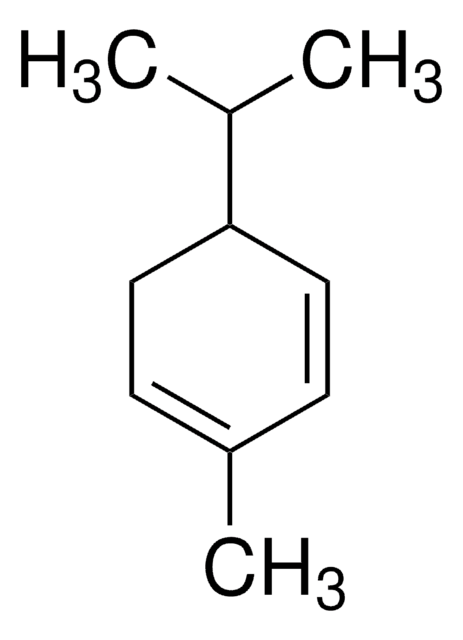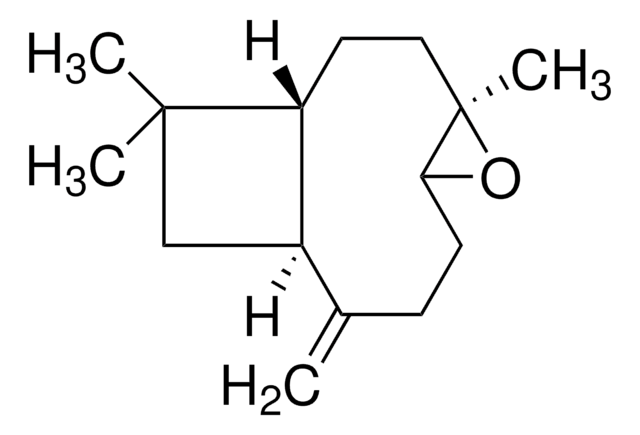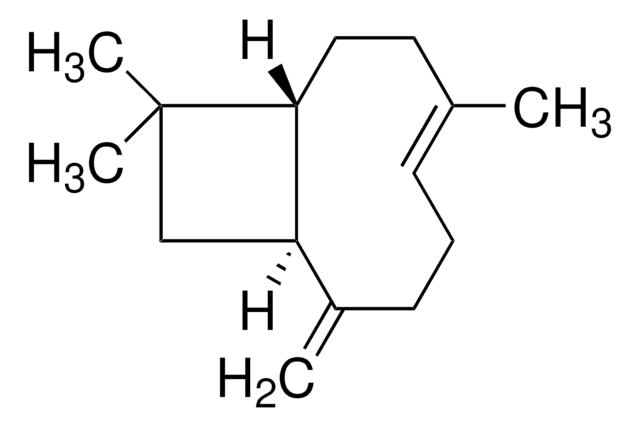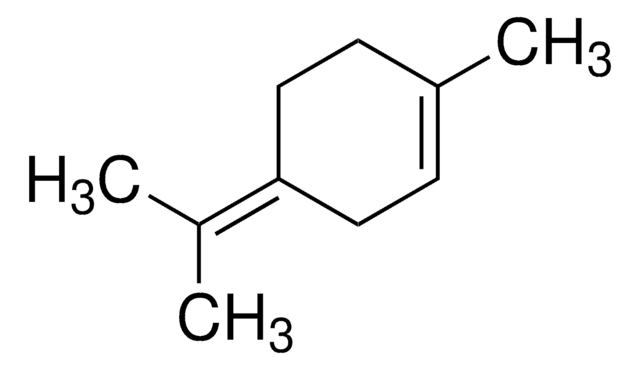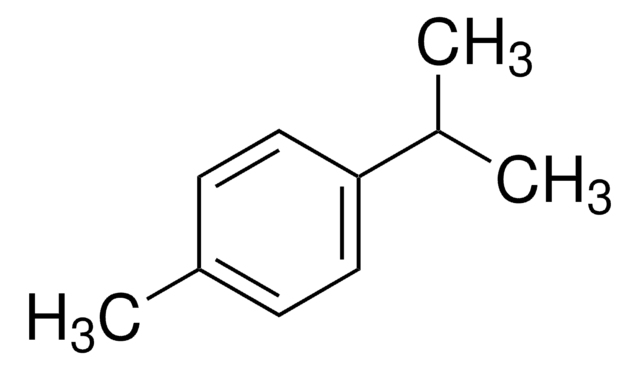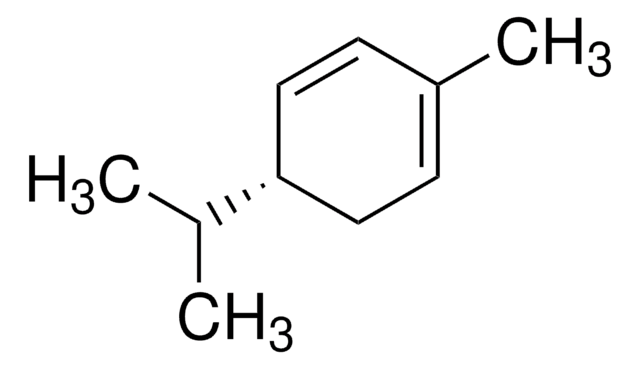223182
α-Terpinene
85%
Synonym(s):
alpha-Terpinene, 1-Isopropyl-4-methyl-1,3-cyclohexadiene, p-Mentha-1,3-diene
About This Item
Recommended Products
Quality Level
Assay
85%
form
liquid
refractive index
n20/D 1.478 (lit.)
bp
173-175 °C (lit.)
solubility
ethanol: soluble 100 mg/mL, clear, colorless
density
0.837 g/mL at 25 °C (lit.)
SMILES string
CC(C)C1=CC=C(C)CC1
InChI
1S/C10H16/c1-8(2)10-6-4-9(3)5-7-10/h4,6,8H,5,7H2,1-3H3
InChI key
YHQGMYUVUMAZJR-UHFFFAOYSA-N
Looking for similar products? Visit Product Comparison Guide
General description
Signal Word
Danger
Hazard Statements
Precautionary Statements
Hazard Classifications
Acute Tox. 4 Oral - Aquatic Chronic 2 - Asp. Tox. 1 - Eye Irrit. 2 - Flam. Liq. 3 - Skin Sens. 1B
Storage Class Code
3 - Flammable liquids
WGK
WGK 2
Flash Point(F)
122.0 °F - closed cup
Flash Point(C)
50 °C - closed cup
Personal Protective Equipment
Choose from one of the most recent versions:
Already Own This Product?
Find documentation for the products that you have recently purchased in the Document Library.
Customers Also Viewed
Protocols
GC Analysis of Sweet Orange Essential Oil on SLB®-5ms (10 m x 0.10 mm I.D., 0.10 μm), Fast GC Analysis
Our team of scientists has experience in all areas of research including Life Science, Material Science, Chemical Synthesis, Chromatography, Analytical and many others.
Contact Technical Service

